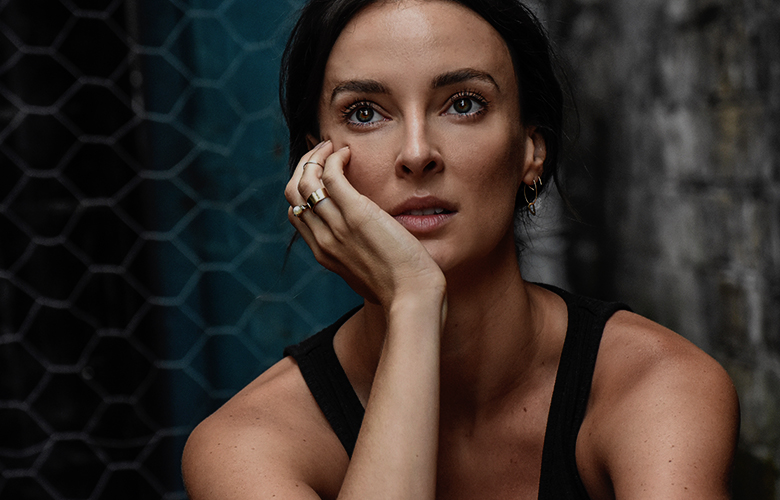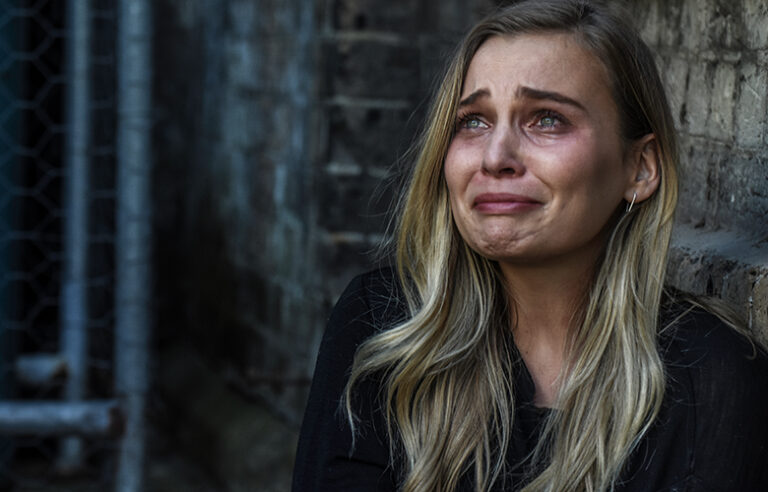
Mental health has long been a sensitive and nuanced topic worldwide and with its devastating prevalence, it’s a subject that’s too close to home to ignore. While we continue to learn more about mental health every day and collectively work to dissolve the stigma that comes with it, we know the positive impact awareness can make. In order to spark conversation and connection, The Imperfectly Perfect campaign is using the faces and stories of well-known personalities.
The success of the campaign hinges on the idea that when public figures open up about their own challenges with mental health, it can help neutralise the inherent, albeit antiquated, shame attached to the issue and ignite important discussions. The campaign primarily focuses on well-known people within the entertainment industry and when its founder Glenn Marsden asked me to be involved, I didn’t hesitate.
I’ve been aware of the mental health challenges facing those navigating a career in the arts for a while now.
It’s a fundamental professional requirement for actors to be emotionally acute, available and vulnerable. Being trained ergo employed to locate, harness and express emotions can, at times, have antagonistic effects on an actor’s mental health. For example, we can have them so readily available at work, we become susceptible to them taking over at home, an emotional hangover if you will. Alternatively, so much time and discipline is dedicated to analysing the impulses, fears and desires of the characters we’re playing, we can feel like that’s sufficient enough emotional analysis for that given day such that we avoid allocating any time to check in with ourselves or each other.

Gone are the days of romanticising an image of the tortured artist and we are entering an era of prioritised mindfulness, open dialogue and reciprocal support. This is not to say that actors won’t continue to face emotional strains. An actor’s recipe will always call for a degree of performance anxiety, job insecurity, criticism and fierce competition, and that’s all before you get to work. Pair this with the psychological demands of the job itself, season with the pressures of everyday adult life and in short, it’s no picnic.
Only recently have exhaustive studies on the correlation between an actor’s work and their personal mental health begun. But we already know, anecdotally at least, that there seems to be a very clear connection between the pressures of the profession and conditions such as depression and anxiety.
Working as a unit stills photographer in Television and Film, Marsden approached colleagues and friends within the industry with his idea for the campaign. “Working with a lot of public profiles that people look up to and aspire to be, I started by reaching out to friends and colleagues in the industry and sharing my vision of what I was hoping to achieve. I asked them if they would shoot and share their own stories with mental health to merely showcase that to people in seemingly glamorous positions, it is just a job at the end of the day and we are all human and go through the same stuff.”
The Imperfectly Perfect campaign is a photographic project that features portraits of actors, athletes, notable chefs, singers etc. to shine a light on the private mental health challenges that are experienced by public faces.
The campaign harnesses the incredible power of social media and word of mouth alone to share their stories. “I wanted to create a visual medium and make use of social media for good and to create some awareness around the very real sides to mental health.

Having been involved in the campaign myself, once my images were shared and I outwardly displayed my support, I began to receive numerous messages of encouragement, gratitude and support. I could clearly see this campaign had an incredible way of galvanising conversation around an issue. When I asked Marsden why this is, he chalked it up to the stripped-back nature of the work, “the images are raw, they are compelling and they’re very real. Mental illness isn’t pretty and with these amazing people coming on board and showing that vulnerability, it is striking a chord with people on a very personal level.”
In addition to the compelling photographs, The Imperfectly Perfect campaign hosts a podcast. After seeing the compelling nature of the images and the resonance of the personal stories accompanying them, Marsden sought another vehicle to communicate the message, “The podcast stemmed from me wanting to put out the people in the campaign’s own words via an additional medium. I wanted to gain a raw, unfiltered candid chat surrounding the topic of mental health, their own personal stories, why they decided to get involved and the misconceptions within an industry that people may think is glamorous 24/7”.
It was important to Marsden to not only create awareness and conversation through the sharing of personal stories, but also provide a call to action and a number of resources for anyone who may be following the campaign to utilise.
The Imperfectly Perfect campaign has been up and running for only two months and has already seen rapid growth and positive engagement. While continuing the incredible in Australia, Marsden has his sights set on taking his mission to the USA, “I have had a lot of international support with some great names wanting to get behind the campaign, which is unbelievable. So I cannot wait to head over and start bringing more awareness to even more people. This campaign is not geography bound as mental health is a world-wide issue”.
To learn more or to lend your support, visit the website
See the campaign on Instagram
To purchase an Imperfectly Perfect Campaign T-shirt
Also by Lydia Sarks:
Actor and Influencer: Do We Have to be Both?


Lydia is an Australian actor, writer and voice-over artist. She also trained as a classical ballerina for 19 years. Lydia currently moves between Sydney, Los Angeles and Vancouver in her primary work as an actor in television though she spends a lot of her spare time writing. In the earlier years of Lydia's career, she worked many other jobs within the entertainment industry until she became a "full-time actor" - Lydia stage managed for main stage theatre and large music festivals, had her own independent theatre company, worked as a dresser in major musicals, ran the art department for a popular Australian children's entertainment group, and of course she was a waiter for a spell too!
Read Full Profile© 2021 TheatreArtLife. All rights reserved.

Thank you so much for reading, but you have now reached your free article limit for this month.
Our contributors are currently writing more articles for you to enjoy.
To keep reading, all you have to do is become a subscriber and then you can read unlimited articles anytime.
Your investment will help us continue to ignite connections across the globe in live entertainment and build this community for industry professionals.